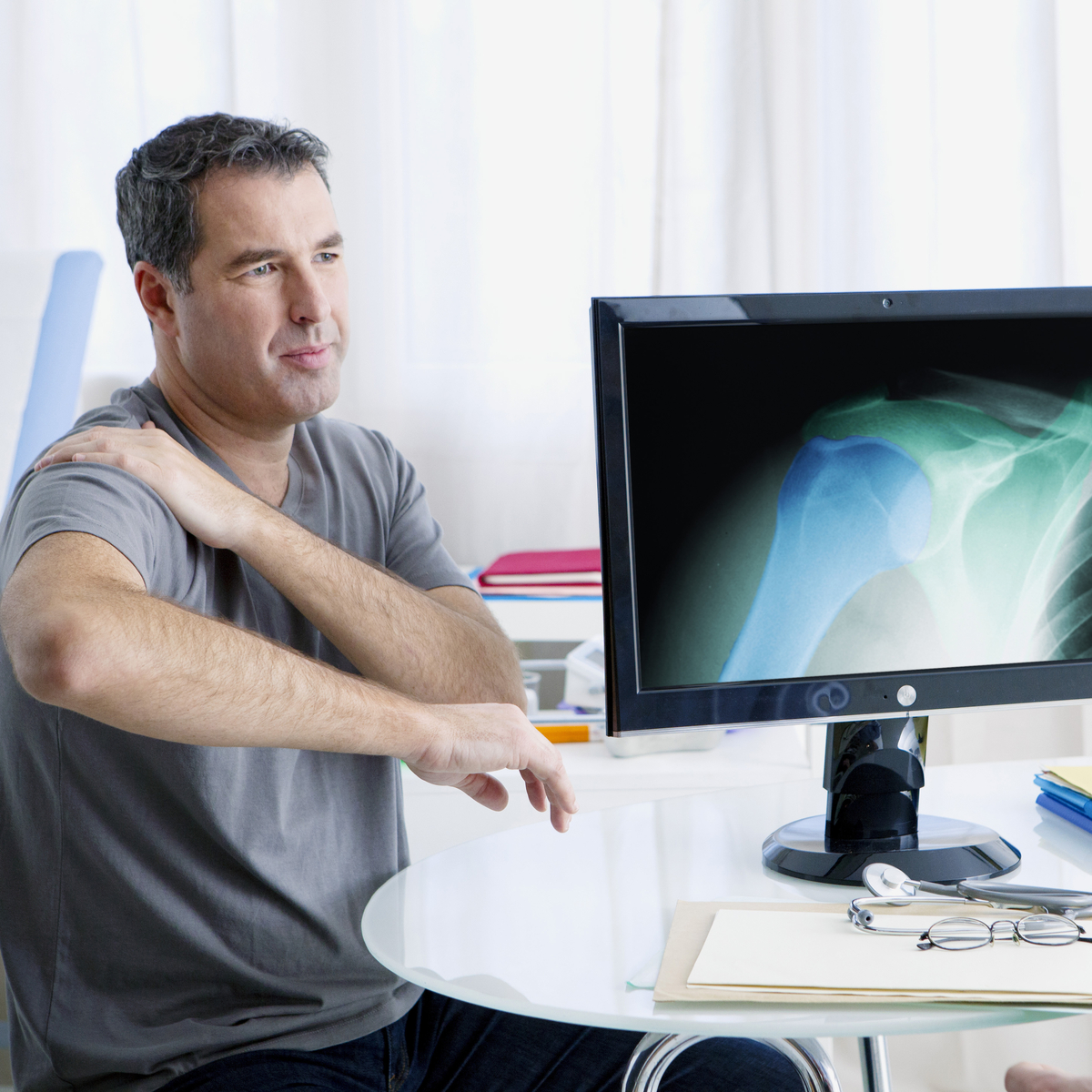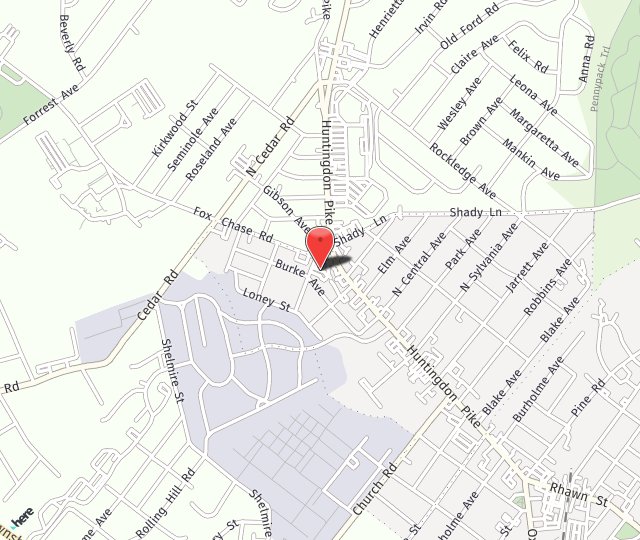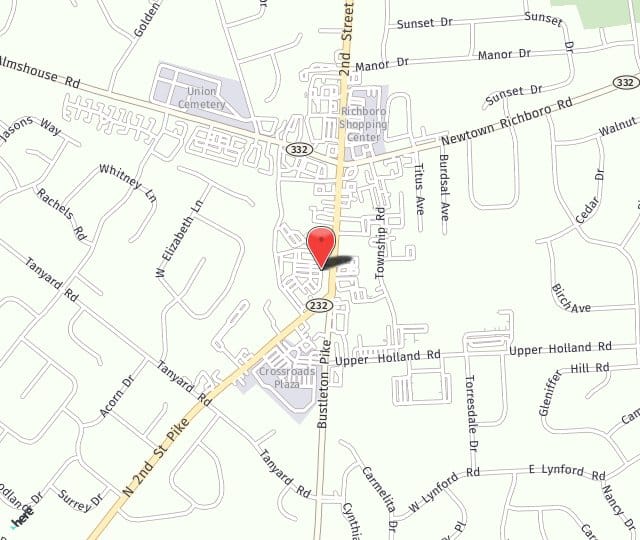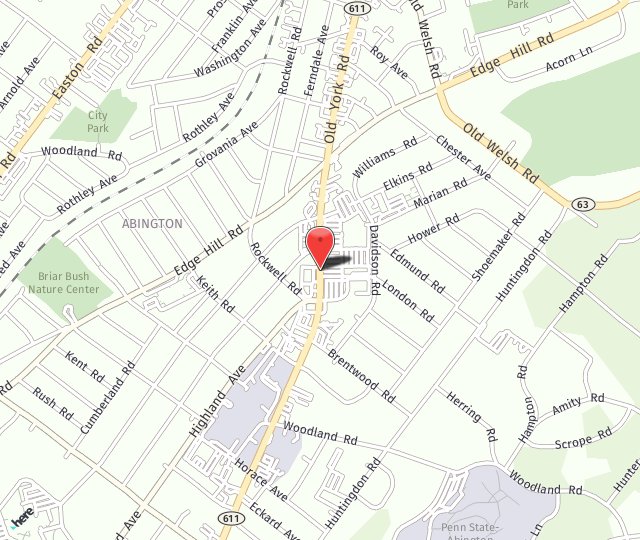
Common Causes of Shoulder Pain
Your shoulder is a wonder of movement. As a ball-and-socket joint, its anatomy is complex and its range of motion versatile. But with this wide range of motion comes the risk for injury and shoulder pain. Shoulder pain can also result from simple wear and tear—problems that are common after age 60.
Our orthopedics specialists can help evaluate and treat your shoulder pain. Whether you need emergency help, physical therapy to heal from a sports-related injury, or a consult with an orthopedic doctor for medication or surgery, our team will guide you through diagnosis and an effective treatment plan. Here are common causes of shoulder pain—and when to get help.
Rotator Cuff Problem: Bursitis, Tendinitis, Tears
Repetitive lifting, sports like tennis, even chores like scrubbing floors can lead to bursitis or tendinitis or a rotator cuff tear. Bursitis and tendinitis involve swelling of the sacs around the shoulder. A tear occurs when tendons connecting shoulder muscles to the upper arm bone separate from the bone. The risk of rotator cuff injury increases with age.
Symptoms include:
- pain over the outside of the shoulder
- shoulder stiffness and limited mobility
- pain when reaching or throwing
- dull ache deep inside the shoulder
- pain that interferes with falling or staying asleep
Frozen Shoulder
Called “adhesive capsulitis,” frozen shoulder usually results from rotator cuff tendonitis, or swelling of the sacs protecting the shoulder.
Symptoms include:
- joint stiffness
- constant pain
- discomfort when reaching behind your back or head
- pain when somebody moves your arm (passive range of motion)
- pain when you move your arm (active range of motion)
SLAP Tears
This shoulder joint tear (superior labrum anterior posterior) usually results from a fall on an outstretched hand or repetitive overhead throwing motion, like a baseball pitcher motion.
Symptoms include:
- deep shoulder pain
- a catching sensation
- popping sound with movement
Shoulder Osteoarthritis
This form of arthritis results from a long-ago injury to the arm, neck, or shoulder.
Symptoms include:
- pain at the front of the shoulder
- stiffness
- loss of both passive and active range of motion
Shoulder Arthritis
Known as AC (Acromioclavicular) arthritis, shoulder arthritis can be painful and severe enough to require a joint replacement surgery.
Symptoms include:
- pain at the top of the shoulder
- grinding sensation when reaching overhead or across the chest
Shoulder Separation
This is also called an AC (Acromioclavicular) separation. It typically results from falling directly onto your shoulder, injuring the ligaments that surround the AC joint.
Symptoms include:
- pain at the top of the shoulder
- bump that forms above the shoulder due to the separation of the shoulder blade from the collarbone
Pinched Nerves
Also known as cervical radiculopathy, this condition occurs when bone spurs form around discs in the upper spine and compress nerves in the neck. Nerve pain radiates to the shoulder area.
Symptoms include:
- numbness in the shoulder
- sharp pain in one shoulder
- pain that worsens when you turn your head
Shoulder Instability
This loose joint condition is typically caused by a traumatic injury or overuse. Sometimes, people with loose ligaments or young athletes may develop an excessive range of motion and a feeling that the shoulder is not staying in place.
Symptoms include:
- feeling as though your shoulder may pop out of joint
- excessive range of motion
Shoulder Dislocation
This injury occurs when your upper arm bone pops out of the socket that’s part of your shoulder blade. A sudden blow to your shoulder or extreme rotation of your shoulder is often the cause. Once you’ve had a dislocated shoulder, it has the tendency to pop out of joint again.
Symptoms include:
- a noticeably out-of-place shoulder
- swelling or bruising
- intense pain
- inability to move the joint
When do I call the doctor?
Shoulder pain can indicate a more serious illness or injury and require a call to 911 or a trip to the emergency room. Pain and discomfort in the arm or shoulder—especially the left arm–are common signs of a heart attack. If you have sudden shoulder pain not related to an injury, trouble breathing, chest tightness, pain in the neck call 911. If you have fever, inability to move shoulder, tenderness, a shoulder injury involving bleeding, swelling, or severe bruising or pain in the shoulder area call your doctor.
To make an appointment, click here or contact us at 215.745.4050.











